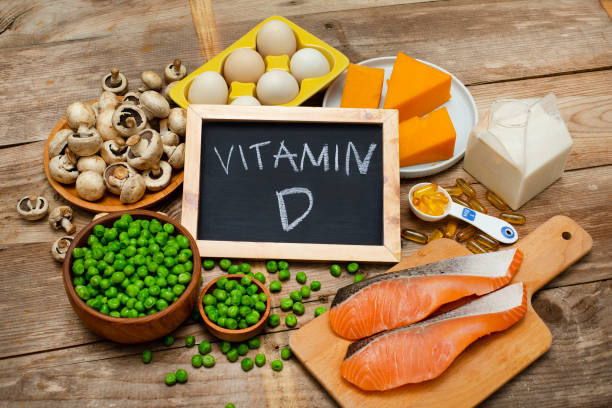Power Up Your Day: Essential High Protein Foods for Energy and Fitness
Explore high protein meals that support energy, muscle health, and overall wellness. From lean meats and fish to plant-based options like beans and lentils, these meals provide satisfying nutrition, helping you stay full longer while fueling an active, balanced lifestyle.

High-Protein Foods That Boost Energy Throughout the Day
Consuming protein-rich foods strategically throughout the day can help maintain steady energy levels and prevent the crashes often associated with carbohydrate-heavy meals. Proteins take longer to digest than carbohydrates, providing a sustained release of energy. Eggs make an excellent breakfast choice, delivering approximately 6-7 grams of complete protein per egg. Greek yogurt offers 15-20 grams per cup while also providing beneficial probiotics. For mid-day energy boosts, consider cottage cheese, which contains about 25 grams of protein per cup, or a small handful of almonds with 6 grams per ounce. These options help stabilize blood sugar levels, preventing energy fluctuations that can leave you feeling fatigued during busy days.
Simple Ways to Incorporate Protein Into Everyday Cooking
Adding more protein to regular meals doesn’t require specialized cooking skills or exotic ingredients. Start by rethinking your breakfast routine—swap traditional cereal for protein-rich alternatives like overnight oats made with milk and chia seeds. For lunch and dinner, consider using beans or lentils as side dishes instead of rice or pasta, instantly boosting protein content. Adding protein powders to smoothies, oatmeal, or even pancake batter creates fortified versions of familiar foods. Batch-cooking protein sources like chicken breast, hard-boiled eggs, or baked tofu provides ready-to-use ingredients that can be added to salads, wraps, or grain bowls throughout the week. Even snacks can be protein-optimized by choosing options like hummus with vegetables or Greek yogurt with berries.
Optimal Protein Timing and Portions for Fitness Support
The timing and distribution of protein intake play significant roles in maximizing fitness benefits. Research suggests consuming 20-30 grams of protein within an hour after exercise helps optimize muscle recovery and growth. For general fitness support, spreading protein intake evenly throughout the day appears more beneficial than consuming the majority in one meal. A practical approach includes consuming 15-30 grams of protein at each meal, depending on body weight and activity level. For strength training enthusiasts, slightly higher protein intake of 1.6-2.2 grams per kilogram of body weight daily may be beneficial, while endurance athletes might aim for 1.2-1.6 grams per kilogram. Protein quality matters too—complete proteins containing all essential amino acids (found in animal products, quinoa, and soy) offer particular advantages for muscle synthesis.
Plant-Based vs. Animal Protein: Finding the Right Balance
Both plant and animal proteins offer unique nutritional benefits, and finding the right balance depends on individual dietary preferences, health considerations, and fitness goals. Animal proteins like meat, fish, eggs, and dairy provide complete proteins with all essential amino acids in adequate proportions. They also typically contain higher amounts of certain nutrients like vitamin B12, zinc, and heme iron, which are more readily absorbed by the body. Plant proteins from sources like legumes, nuts, seeds, and whole grains often come packaged with fiber, antioxidants, and phytonutrients absent in animal products. For those following vegetarian or vegan diets, combining different plant proteins throughout the day ensures adequate intake of all essential amino acids. Research increasingly suggests that a diet incorporating both high-quality animal and plant proteins may offer optimal health benefits.
High-Protein Meal Prep Strategies for Busy Lifestyles
Meal preparation is a practical approach to ensuring consistent protein intake despite busy schedules. Dedicating 1-2 hours weekly to preparing protein-rich components can tremendously simplify daily meal assembly. Begin with batch-cooking versatile proteins like grilled chicken breasts, hard-boiled eggs, or seasoned tofu that can be incorporated into various meals throughout the week. Preparing protein-rich bases such as quinoa salads, bean mixtures, or Greek yogurt parfaits provides grab-and-go options for hectic mornings or workdays. Freezing individual portions of protein-heavy meals like chili, curry, or stew creates emergency options for days when cooking is impossible. Investing in quality storage containers helps maintain freshness and makes transportation convenient. With strategic planning, maintaining optimal protein intake becomes manageable even for the busiest individuals.
Popular High-Protein Foods and Their Nutritional Profiles
Understanding the nutritional profile of common protein sources helps make informed dietary choices aligned with individual health and fitness goals. Below is a comparison of readily available high-protein foods:
| Food Item | Protein Content (per 100g) | Key Nutrients | Calories |
|---|---|---|---|
| Chicken Breast | 31g | B vitamins, selenium | 165 |
| Greek Yogurt | 10g | Calcium, probiotics | 59 |
| Salmon | 25g | Omega-3 fatty acids, vitamin D | 206 |
| Lentils | 9g | Iron, folate, fiber | 116 |
| Eggs | 13g | Choline, vitamin D, lutein | 155 |
| Cottage Cheese | 11g | Calcium, phosphorus | 98 |
| Tofu | 8g | Iron, calcium, manganese | 76 |
| Quinoa | 4g | Magnesium, fiber, antioxidants | 120 |
High-protein foods vary significantly in their nutrient density, making variety important for comprehensive nutrition. While animal sources typically provide more protein per serving than plant sources, combining different protein foods throughout the day ensures adequate intake of all essential nutrients. The calorie content also varies substantially, which is an important consideration for those with specific fitness or weight management goals.
Incorporating a diverse range of high-protein foods into your daily diet supports energy levels, enhances workout recovery, and contributes to overall health maintenance. Whether you prefer animal proteins, plant-based options, or a combination of both, consistent protein intake distributed throughout the day offers the greatest benefits for sustaining energy and supporting fitness objectives.
This article is for informational purposes only and should not be considered medical advice. Please consult a qualified healthcare professional for personalized guidance and treatment.




